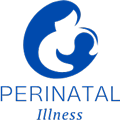Do you think that you or a loved one is suffering from perinatal depression? Although it is extremely important to seek medical help immediately, many women are afraid to ask for the help they need once they become depressed after giving birth. There are a handle of reason for this whether it is feelings ashamed, embarrassed, guilty, or simply feeling like an awful mother. It is normal for a new mother to be overwhelmed and filled with a mixture of anxiety, sadness, fear, worry, or maybe even anger among other things. Also known as the “baby blues,” this mixture of crazy emotions tends to subside after a few weeks. However, these symptoms do sometimes build up and put a major load of stress and pressure on a new mom which may result in depression.
There are simple screenings and tests that health professionals can do in order to either rule out or rule in favor of postnatal depression. Today with more than enough information and resources being available online, there are numerous online screenings and tests that you can be taken in the comfort of your own home and privacy in order to determine whether you should seek the advice and/or help of a health professional.
Do I Have Postnatal Depression?
Although many experienced health professionals can determine whether or not you are suffering from postnatal depression just by asking two simple questions, there are also other screenings and tests that can be done in order to determine this as well (just in case you do not believe him/her).
Postnatal Depression Screening
Have you ever been screened for something at the doctor’s office or hospital before? Well, this works the same way. Postnatal depression screenings assess women to see if they need to be tested any further, if treatment is appropriate, or if they should be given information pertaining to a certain area/topic.
Postpartum Depression Screening Scale (PDSS)
PDSS is a screening tool that is used to identify and refer women to treatment options best suited for them, if they are suffering from postpartum depression. This screening is made up of a total of thirty-five questions/items, covering seven different areas/domains each consisting of five questions. The PDSS is a quick screening tool and usually takes the average woman five to ten minutes to complete. Areas that are covered on the PDSS include: guilt/shame, loss of self, sleeping/eating disturbances, contemplating harming oneself, anxiety/depression, emotional liability, and cognitive impairment. Scoring of this screening is based on a scale from 0-100, with a cut off score of 80 showing those who suffer from major depression and a cut off score of 60 showing those who suffer from minor depression.
Edinburgh Postnatal Depression Scale (EPDS)
EPDS is a made up of a series of ten questions and is used in order to determine whether women have symptoms that are frequently seen among those with depression and/or anxiety during pregnancy as well as the first year of their child’s life. This test focuses on the emotions and actions one has had within the past seven days. A scale from 0-30 in used in order to assess the symptoms one has associated with postnatal depression. Those who score a ten or higher on the EPDS should immediately consult a health professional about their symptoms related to depression.
Blood Test to Rule-Out Postnatal Depression
During your doctor’s visit is a very possible that he/she will draw blood in order to make sure nothing is going on ‘physically’ that is causing these symptoms. Two very commonly seen situations include a patient who either has anemia or a thyroid that is underactive. Anemia which is the lack of iron within the body is common after giving birth, and makes you feel very tired. This could possibly be mistaken as a symptom of depression rather than anemia. Like anemia, a thyroid that is not performing to its general standards can also cause you to become tired more quickly than normally. Performing blood tests to rule these two conditions out is important, not only do they cause you to become tired more quickly but they also put a toll on other parts and functions of your body.
Postnatal depression is a temporary damper and can be fought, but getting help in order to stop your depression from worsening is important. Just think about all the amazing moments and memories you can have when you are back to being yourself again!
Note: Screenings and tests done online such as the PDSS and the EPDS may not be 100% accurate, in order to get a current diagnosis speak to your physician or other health professional within the area. They can provide you with a diagnosis and get you the treatment and/or help you need.
